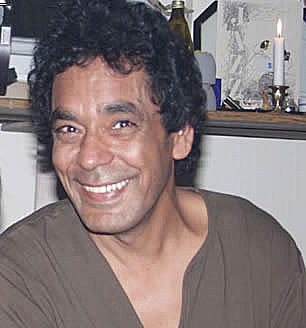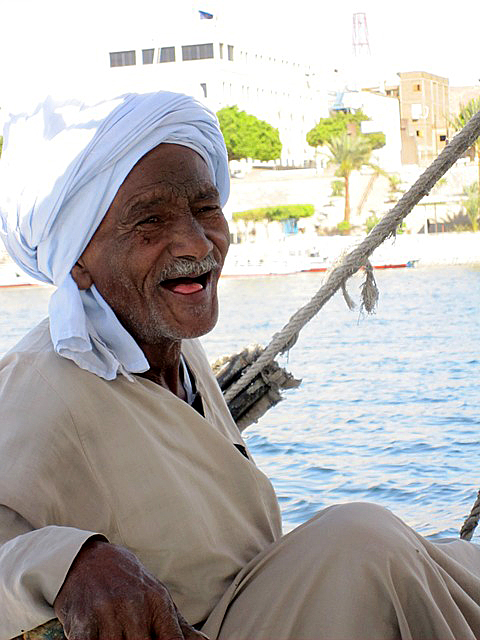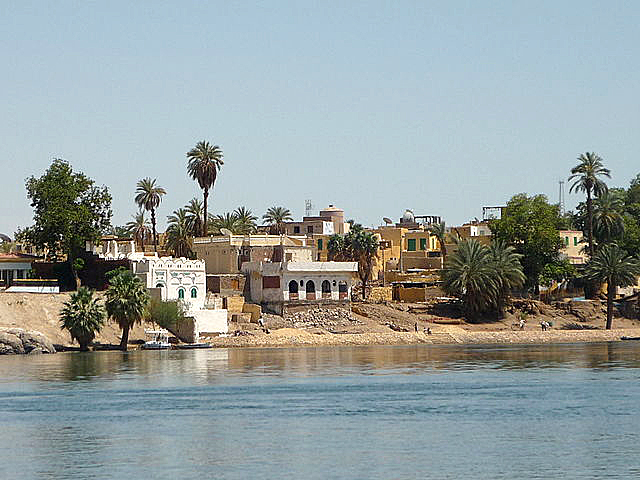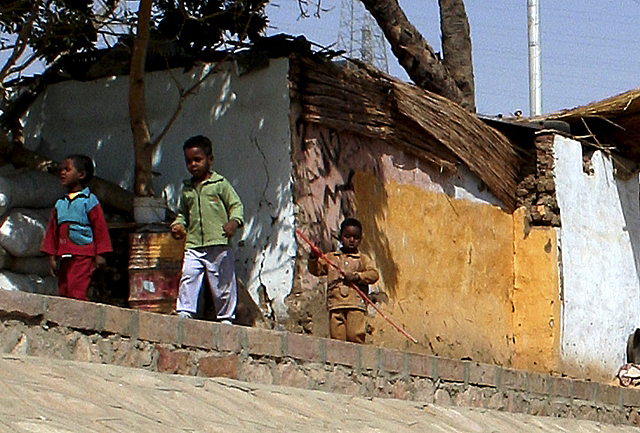An Egyptian television series called “The Singer” recently angered the Nubian community by seriously misrepresenting the history of their removal from Old Nubia in the 1960s. A news report in Al Monitor last week explained the reactions and controversy surrounding episode 5 of the series.

The series includes the popular Egyptian singer, actor, and musician Mohamed Mounir, whose page on Facebook has been “liked” by over 7,000,000 people. According to a biographical sketch in Wikipedia, he was born in Old Nubia and relocated to Cairo along with his family and other Nubians when the Aswan High dam was closed, forming Lake Nasser in the 1960s.
The Nubia page on Facebook expressed irritation at scenes in the episode showing Nubians reacting with pleasure to their forced evacuation from Old Nubia in 1963. At one point in the drama, the producers showed a child happily carrying a portrait of President Gamal Abdel Nasser, a scene that Al Monitor reproduced as an image in their article. In the background, evidently, a song was being played that the Nubians associate with happy occasions.

The authors of the page launched a campaign to counter the impression that the series is conveying about the loss of Old Nubia. A Nubian activist, Hamdi Suleiman, stated that the series intentionally misrepresents the history of Nubia. He posted in Facebook his contention that depicting Nubians being transported out of Old Nubia on luxurious vessels was an overt lie. In fact, he argued, the Nubians were transported to their resettlement centers in cattle boats. Also, the Nubians would have spoken in the Nubian language, not in Arabic as the TV series showed.
The leader of the General Nubian Union in Aswan, Mohamed Azmi, said that Mohamed Mounir’s decision to represent the Nubian tragedy in such an absurd way was intentional—it was not an accident. He pointed out that, in addition to being born a Nubian, Mournir had sung a song some years ago called “Abayasa,” which was about Nubian suffering and their desire to return to their homes along the Nile.
Mr. Azmi hinted, in an interview with Al Monitor, that the Egyptian state may have had some influence over the content of the series. He suggested that the government is always glad to show the Nubians as pleased with their displacement. It intends to deny them their rights, he contended. He also pointed out that reviving the Nubian language is essential to preserving the culture of their society.

He argued further that many Nubians would still like to return to the banks of the Nile—an inherent right that is codified in the Egyptian constitution. The journalist contacted a 68-year old Nubian woman named Hadiyah Gamal who lives in the resettlement community of Kom Ombo, north of Aswan city. She admitted she is watching “The Singer” and, when asked for her opinion about the scene showing the evacuation, she said that there were indeed some Nubians who were at least initially happy. Nasser had promised that the evacuees would be satisfied with their new homes in Kom Ombo, but his promises were not carried out, she said.
The reporter interviewed Ms. Gamal’s son, Ridha Mustafa, for his opinions. A Nubian activist, he said that the series should have included the sufferings of the refugees, rather than sugar coating the history with scenes of joy.
The journalist contacted Mohammad Mohammadi, a man who was one of the authors of the TV series. He said that the writers did not intend for the series to show the Nubians as pleased with being forced into exile. He firmly denied that the government has had anything to do with creating the series. Furthermore, he and his co-author, Ahmed Mohyi, had not intended to embellish the reputation of the Nasser government of the 1960s.

He did not address the issue of why Mr. Mounir, who was just a boy when he and his family were evacuated from Old Nubia, allowed the scenes to be created as they were. He did admit that the luxury vessels used in the evacuation scene were not realistic, but he sought to excuse himself with the notion that they had been pressed for time to complete filming the scene. He explained that Arabic was spoken rather than Nubian because many Egyptians would not have understood the latter. He told the journalist that, in later episodes, “we hope that the suffering of the Nubians will be represented in a more realistic way.”
He added that he certainly respected the anger of the Nubian people, though he hoped they would reserve making judgments about the series until it is finished.